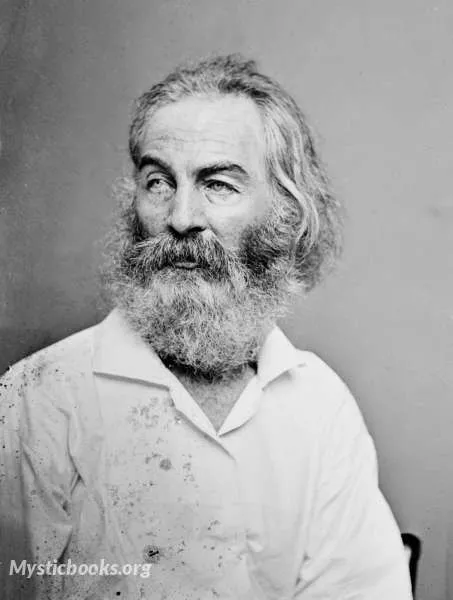
Timeline
Title
Country/Nationality
Walt Whitman
Walter Whitman was an American poet, essayist, and journalist. A humanist, he was a part of the transition between transcendentalism and realism, incorporating both views in his works. Whitman is among the most influential poets in the American canon, often called the father of free verse. His work was controversial in its time, particularly his poetry collection Leaves of Grass, which was described as obscene for its overt sensuality. Whitman's own life came under scrutiny for his presumed homosexuality.
Whitman's work breaks the boundaries of poetic form and is generally prose-like. He also used unusual images and symbols in his poetry, including rotting leaves, tufts of straw, and debris. He also openly wrote about death and sexuality, including prostitution. He is often labeled as the father of free verse, though he did not invent it.
Poetic theory
Whitman wrote in the preface to the 1855 edition of Leaves of Grass, "The proof of a poet is that his country absorbs him as affectionately as he has absorbed it." He believed there was a vital, symbiotic relationship between the poet and society. This connection was emphasized especially in "Song of Myself" by using an all-powerful first-person narration. As an American epic, it deviated from the historic use of an elevated hero and instead assumed the identity of the common people. Leaves of Grass also responded to the impact that recent urbanization in the United States had on the masses.
Walter Whitman was born on May 31, 1819, in West Hills, Town of Huntington, Long Island, to parents with interests in Quaker thought, Walter (1789–1855) and Louisa Van Velsor Whitman (1795–1873). The second of nine children, he was immediately nicknamed "Walt" to distinguish him from his father. Walter Whitman Sr. named three of his seven sons after American leaders: Andrew Jackson, George
At age 16 in May 1835, Whitman left the Star and Brooklyn. He moved to New York City to work as a compositor though, in later years, Whitman could not remember where. He attempted to find further work but had difficulty, in part due to a severe fire in the printing and publishing district, and in part due to a general collapse in the economy leading up to the Panic of 1837. In May 1836, he rejoined his family, now living in Hempstead, Long Island.[24] Whitman taught intermittently at various schools until the spring of 1838, though he was not satisfied as a teacher.
After his teaching attempts, Whitman went back to Huntington, New York, to found his own newspaper, the Long-Islander. Whitman served as publisher, editor, pressman, and distributor and even provided home delivery. After ten months, he sold the publication to E. O. Crowell, whose first issue appeared on July 12, 1839.
Whitman moved to New York City in May, initially working a low-level job at the New World, working under Park Benjamin Sr. and Rufus Wilmot Griswold. He continued working for short periods of time for various newspapers; in 1842 he was editor of the Aurora and from 1846 to 1848 he was editor of the Brooklyn Eagle.
Throughout the 1840s he contributed freelance fiction and poetry to various periodicals, including Brother Jonathan magazine edited by John Neal. Whitman lost his position at the Brooklyn Eagle in 1848 after siding with the free-soil "Barnburner" wing of the Democratic party against the newspaper's owner, Isaac Van Anden, who belonged to the conservative, or "Hunker", wing of the party. Whitman was a delegate to the 1848 founding convention of the Free Soil Party, which was concerned about the threat slavery would pose to free white labor and northern businessmen moving into the newly colonised western territories. Abolitionist William Lloyd Garrison derided the party philosophy as "white manism".
In 1852, he serialized a novel titled Life and Adventures of Jack Engle: An Auto-Biography: A Story of New York at the Present Time in which the Reader Will Find Some Familiar Characters in six installments of New York's The Sunday Dispatch. In 1858, Whitman published a 47,000 word series called Manly Health and Training under the pen name Mose Velsor. Apparently he drew the name Velsor from Van Velsor, his mother's family name. This self-help guide recommends beards, nude sunbathing, comfortable shoes, bathing daily in cold water, eating meat almost exclusively, plenty of fresh air, and getting up early each morning. Present-day writers have called Manly Health and Training "quirky", "so over the top", "a pseudoscientific tract", and "wacky".
Whitman died on March 26, 1892. An autopsy revealed his lungs had diminished to one-eighth their normal breathing capacity, a result of bronchial pneumonia, and that an egg-sized abscess on his chest had eroded one of his ribs. The cause of death was officially listed as "pleurisy of the left side, consumption of the right lung, general miliary tuberculosis and parenchymatous nephritis". A public viewing of his body was held at his Camden home; over 1,000 people visited in three hours. Whitman's oak coffin was barely visible because of all the flowers and wreaths left for him. Four days after his death, he was buried in his tomb at Harleigh Cemetery in Camden. Another public ceremony was held at the cemetery, with friends giving speeches, live music, and refreshments. Whitman's friend, the orator Robert Ingersoll, delivered the eulogy. Later, the remains of Whitman's parents and two of his brothers and their families were moved to the mausoleum.
Books by Walt Whitman
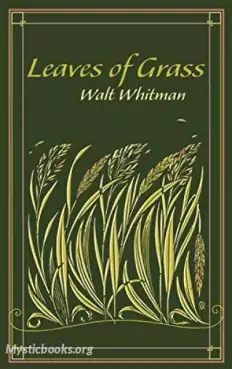
Leaves of Grass
Nearly 160 years after it was first published, Walt Whitman's Leaves of Grass continues to inspire, enthrall and educate generations of readers. This collection of poems serves as a vehicle for Whitman's philosophy, ideals, love of nature and mystica...
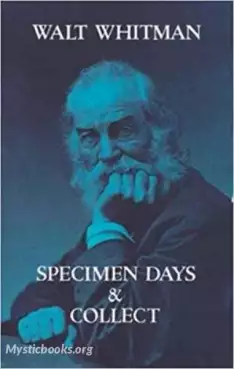
Specimen Days and Collect
Specimen Days is essentially the great American poet Walt Whitman's scrap book. It documents most of his life's adventures, especially his experience serving as a nurse during the Civil War and travelling around America.
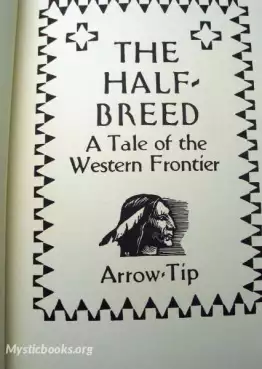
The Half-Breed: A Tale of the Western Frontier
The Half-Breed; A Tale of the Western Frontier is a fictional story written by Walt Whitman in 1845, which was originally published under the name of "Arrow-Tip". Walt Whitman was an American journalist and poet from West Hill, New York. The Half-Bre...
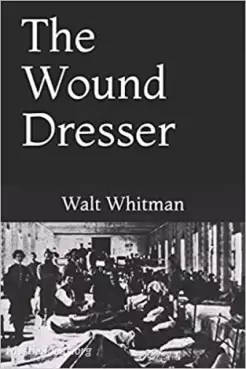
The Wound Dresser
The Wound Dresser is a series of letters written from the hospitals in Washington by Walt Whitman during the War of the Rebellion to The New York Times, the Brooklyn Eagle and his mother, edited by Richard Maurice Burke, M.D., one of Whitman's litera...
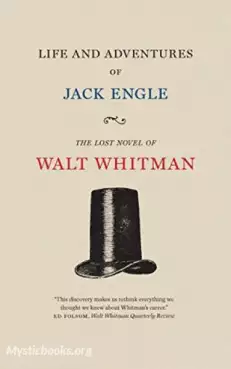
Life and Adventures of Jack Engle
Life and Adventures of Jack Engle: An Auto-Biography: A Story of New York at the Present Time in Which the Reader Will Find Some Familiar Characters is a city mystery novel by Walt Whitman. It was first published anonymously in 1852 as a serial in a...
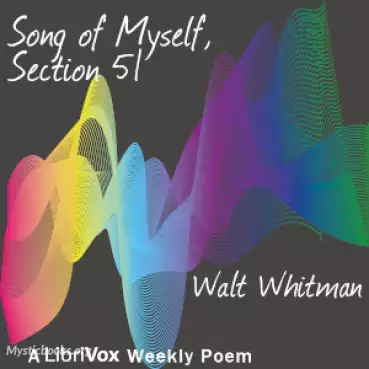
Song of Myself, section 51
It is part of the larger work "Leaves of Grass," a collection of poems that was first published in 1855. This particular section of "Song of Myself" is considered one of the most famous and well-regarded poems in the entire collection. In "Song of M...
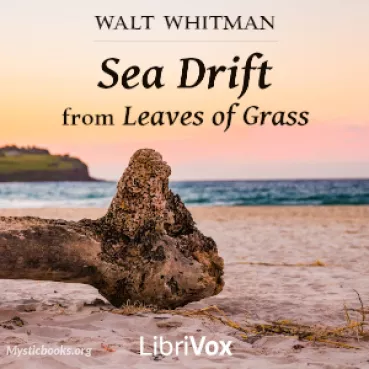
Sea Drift from Leaves of Grass
In the swirling depths of Walt Whitman's poetic seascape, "Sea Drift" emerges like a mesmerizing tempest, inviting you to journey through the essence of existence. In this exceptional collection drawn from Whitman's timeless masterpiece, "Leaves of G...
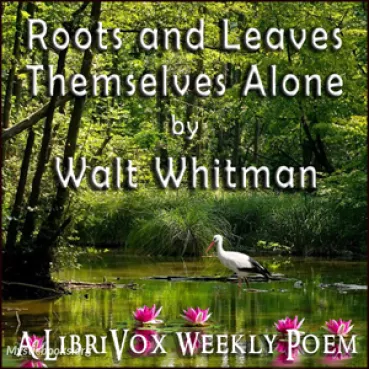
Roots and Leaves Themselves Alone
Walt Whitman, the celebrated poet of American democracy, invites you to a journey of the senses in his lyrical poem, "Roots and Leaves Themselves Alone." In this evocative poem, Whitman celebrates the beauty and bounty of nature, and the interconnec...
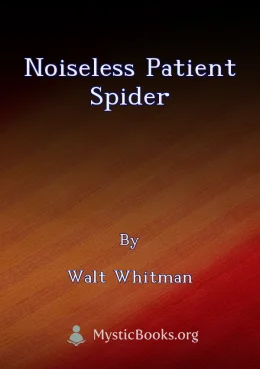
Noiseless Patient Spider
LibriVox volunteers bring you eight different readings of Walt Whitman’s A Noiseless Patient Spider, a weekly poetry project. (Summary by Annie Coleman)
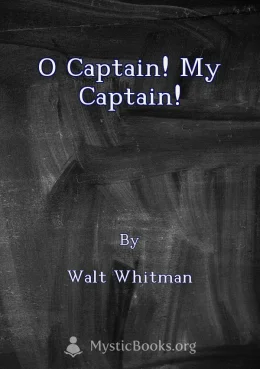
O Captain! My Captain!
In honor of President’s Day, LibriVox brings you thirteen versions of O Captain! My Captain! by Walt Whitman. This classic poem was written by Whitman following the assassination of Abraham Lincoln. It appears in Leaves of Grass, Whitman’s masterpi...
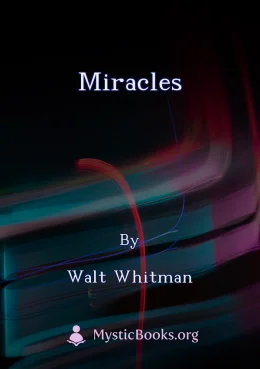
Miracles
LibriVox volunteers bring you 15 different recordings of Miracles, by Walt Whitman. This was the weekly poetry project for the week of March 4th, 2007.
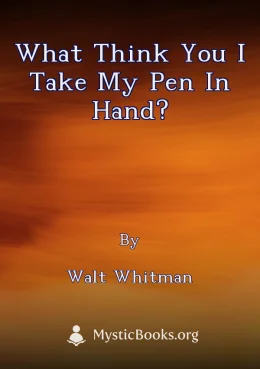
What Think You I Take my Pen in Hand?
LibriVox volunteers bring you 15 different recordings of What think you I take my pen in hand? by Walt Whitman. This was the weekly poetry project for the week of April 29th, 2007.
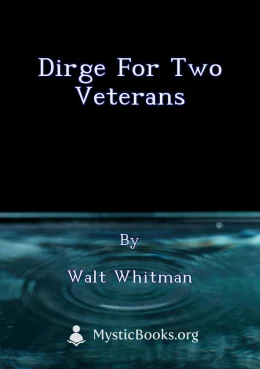
Dirge for Two Veterans
In celebration of Memorial Day in the United States, 2007, LibriVox volunteers bring you twelve different recordings of Dirge for Two Veterans by Walt Whitman. This was the weekly poetry project for the week of May 27th, 2007 (summary by Karen Savage...
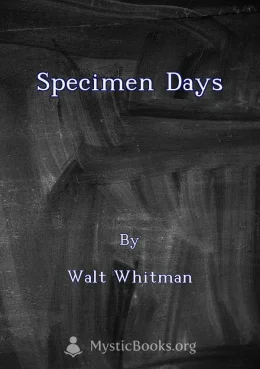
Specimen Days
Specimen Days is essentially the great American poet Walt Whitman's scrap book. It documents most of his life's adventures, especially his experience serving as a nurse during the Civil War and travelling around America.
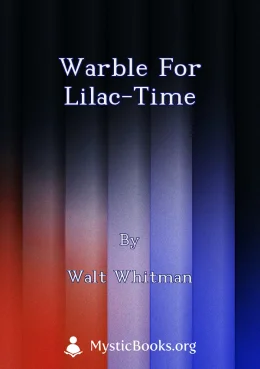
Warble for Lilac-Time
LibriVox volunteers bring you 6 different recordings of Warble for Lilac-Time by Walt Whitman.
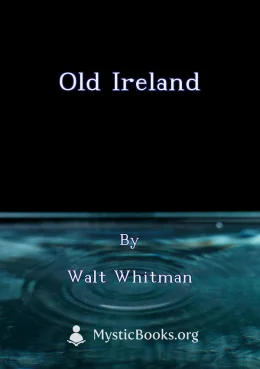
Old Ireland
A collection of 11 essays by Walt Whitman about the history, culture, and people of Ireland.
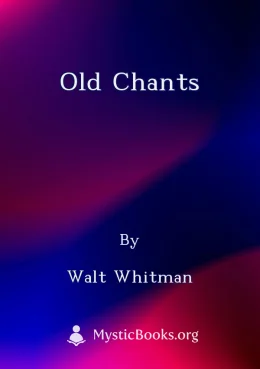
Old Chants
Walt Whitman's "Old Chants" is a collection of some of his earliest poems. These poems are characterized by their free verse style and their focus on themes of nature, spirituality, and the human condition.
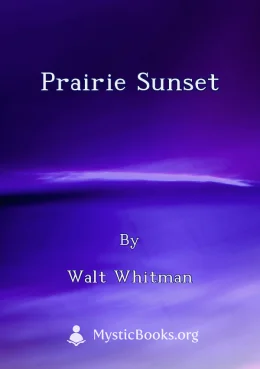
Prairie Sunset
Walt Whitman's 'Prairie Sunset' is a collection of poems that explore the vastness, beauty, and spirit of the American Midwest. Through vivid imagery and evocative language, Whitman captures the essence of the prairie landscape, its people, and the s...
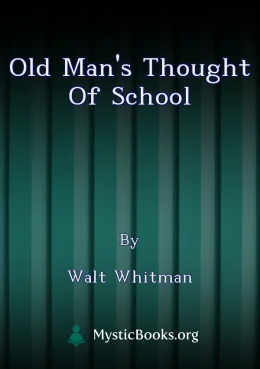
Old Man's Thought of School
An Old Man's Thought of School is a short, reflective poem by Walt Whitman that captures the essence of childhood education and its enduring impact on an individual's life. Through a series of vivid imagery and emotional recollections, Whitman explor...
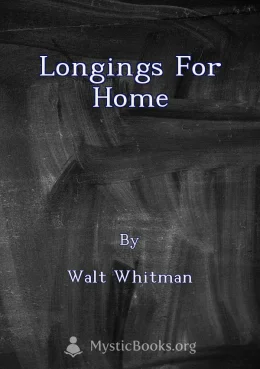
Longings for Home
“Longings for Home” is a collection of essays by Walt Whitman, exploring themes of home, longing, and nostalgia. It delves into the complexities of human connection, the search for belonging, and the transformative power of nature. Written with Whit...
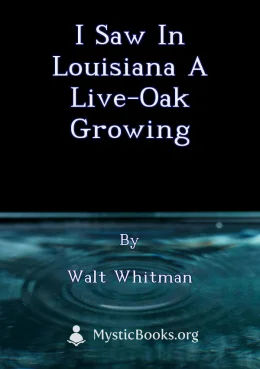
I Saw in Louisiana a Live-Oak Growing
This poem, by Walt Whitman, celebrates the beauty and majesty of a live oak tree that he encountered in Louisiana. He describes the tree's massive trunk, its spreading branches, and its evergreen leaves. He compares the tree to a cathedral, a temple,...
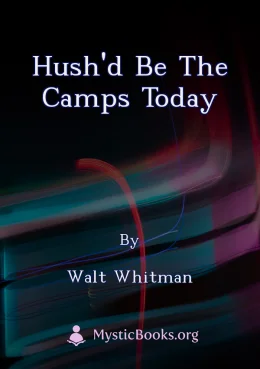
Hush'd Be the Camps Today
Hush'd Be the Camps Today is a collection of 16 readings of Walt Whitman's poem of the same name. The poem is an elegy for Abraham Lincoln, who was assassinated on April 15, 1865. Whitman's poem is a moving and powerful tribute to the fallen presiden...
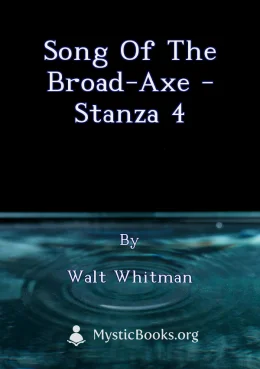
Song of the Broad-Axe - stanza 4
This excerpt from "Song of the Broad-Axe" (4th Stanza) by Walt Whitman explores themes of nature, labor, and the power of the individual. Whitman uses the image of the broad-axe, a tool of creation and destruction, to symbolize the transformative pot...
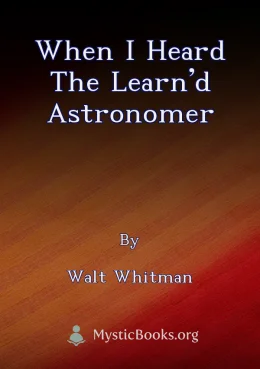
When I heard the Learn’d Astronomer
“When I Heard the Learn’d Astronomer” is a short poem by Walt Whitman, originally published in the 1860 edition of *Leaves of Grass*. It reflects on the contrasting experiences of learning about the cosmos from a knowledgeable astronomer versus direc...
Showing 1 to 24 of 31 results